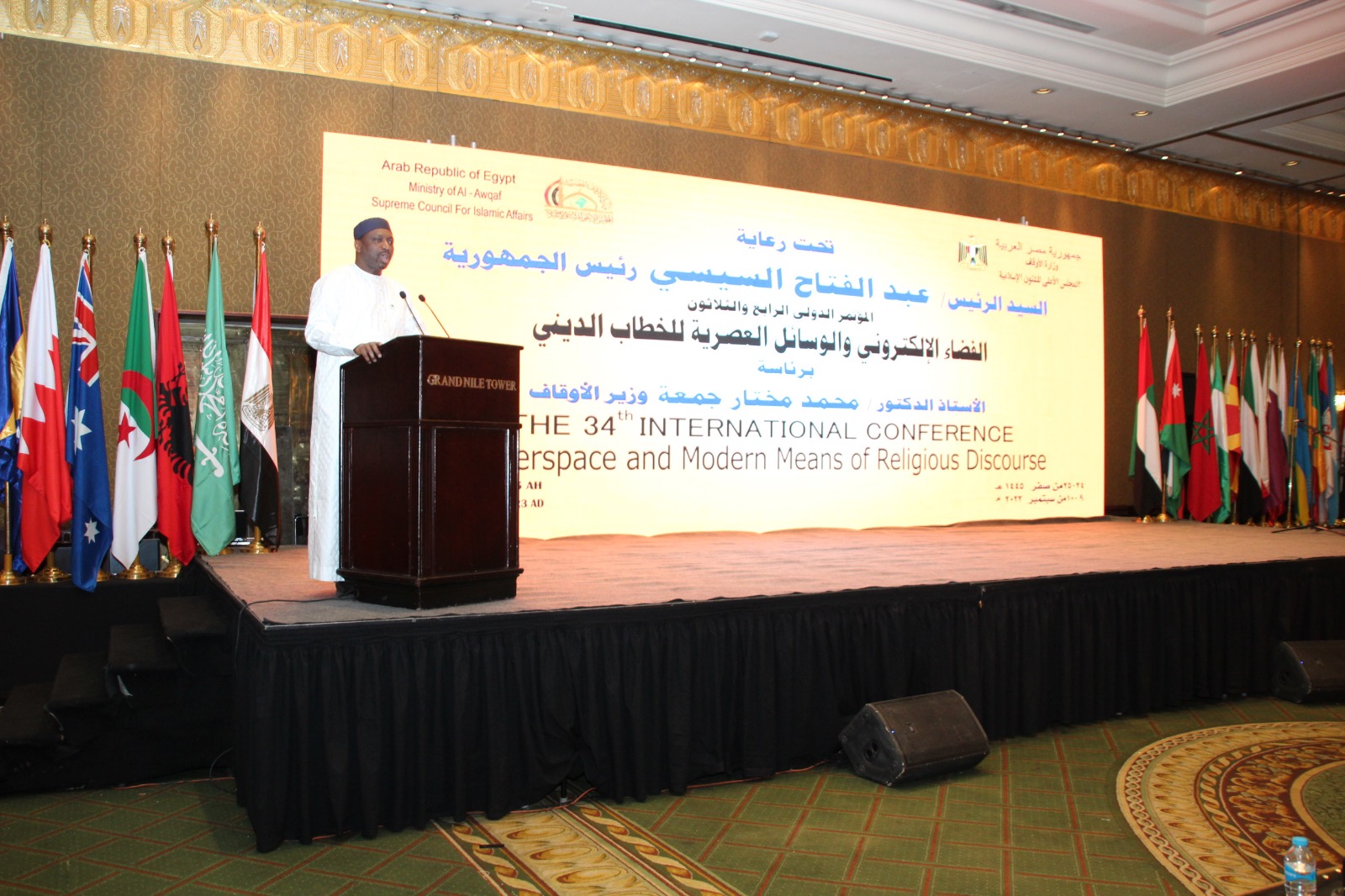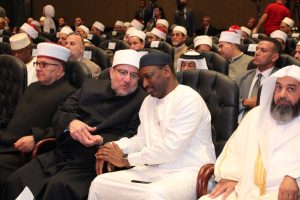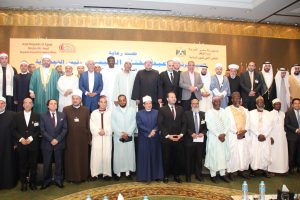
At the kind invitation of H.E. Prof. Mohamed Mokhtar Gomaa, Minister of Awqaf and President of the Supreme Council for Islamic Affairs of the Arab Republic of Egypt, H.E. Prof. Koutoub Moustapha Sano, Secretary General of the Academy, participated in the thirty-fourth international conference of the Supreme Council for Islamic Affairs, held under the patronage of H.E. Mr. Abdel Fattah El-Sisi, President of the Arab Egypt Republic, on Saturday to Sunday, 24-25 Safar 1445, corresponding to 9-10 September 2023, in Cairo.
His Excellency delivered a speechat the ministers’ session, in which he expressed his sincere thanks and appreciation to the Minister of Awqaf for inviting the International Islamic Fiqh Academy to participate in this important international conference. His Excellency also expressed his thanks to Egyptian leadership and people for their generosity and hospitality. His Excellency then clarified that cyberspace, with its networks, means, and continuous development and rapid change, has become a reality that we cannot reject or bypass. Rather, it has become a part of our lives that we are affected by and affects us, and we have no choice but to keep up by absorbing it, mastering it, and making the most of it. It is also considered one of Allah’s privileges, Who has perfected His religion, and completed His blessing, but did not end it. There is a difference between completion and perfection, as completion does not accept more, but rather a decrease. As for perfection, it can welcome more perfection. Therefore, cyberspace is considered as a means, and one of Allah’s blessings that must be used in what brings goodness, righteousness, and prosperity to us, society, nations, and the world. His Excellency stressed that cyberspace, with all its components, is considered a type of means whose rule is determined by the rule of purposes. It is also considered a double-edged sword, and therefore we must use it and harness its potential to serve religion, society, the Ummah, and the world. We must be open to it and work hard to comprehend and master it, before revealing whether it is permissible or prohibited. In this regard, His Excellency pointed out that the talk about the permissibility and prohibition of cyberspace is a talk that has outdated time, because the basic principle of means in our Sharia is permissibility. Likewise, saying to accept cyberspace or not accepting it has outlived its time, because cyberspace has become a non-existent reality. We can reject it or bypass it because it has imposed itself on us and there is no escape from being open to it, dealing with it, and subordinating it by guiding it, and rationalizing it, so that it becomes a useful and beneficial means that we employ to promote religious discourse represented by statements, news, sermons, and opinions that are attributed to Sharia. This discourse is in dire need of making the most of cyberspace, as it is one of the most influential in the current era.
H.E. Prof. Koutoub Moustapha Sano, Secretary General of the Academy, concluded his speech by stressing that responsible behavior with cyberspace, with its networks, and its renewable, expanding and developing means, should start from three basic foundations, which are payment, guidance, and rationalization. As for payment, it means building on the benefits and interests contained in cyberspace, and correcting the evils and dangers it may contain so that it becomes an effective means from which the moderate religious discourse will benefit. We aim to employ this cyberspace in a direction that brings benefit, goodness, and righteousness to the individual, society, the Ummah, and the world far and wide, away from any harmful usage that would spread extremism, fanaticism, militancy, and terrorism. As for rationalization of the cyberspace, it means enabling young people to comprehend the cyberspace in a deep and accurate manner, so that their dealings with it become rational, based on distinguishing between its benefits and harms, with a comprehensive and conscious understanding of how to employ it in religious discourse, in time and place. Hence, invoking these three foundations in using cyberspace to serve religious discourse makes it the wisdom that is the believer’s lost treasure, wherever he finds it, he should benefit from it.
It is worth mentioning that this annual international conference, organized the Ministry of Awqaf through the Supreme Council for Islamic Affairs, has recently witnessed a remarkable leap in the topics and issues it discusses since H.E. Prof Mohamed Mokhtar Gomaa, assumed the position of Minister of Awqaf. H.E. Prof. Koutoub Moustapha Sano described him in his speech as someone who follows up with skill and ability on all the developments and changes that digital world brings about, which has made his ministry a developed, witnessing, and up-to-date ministry.
Read Also
Lastest










